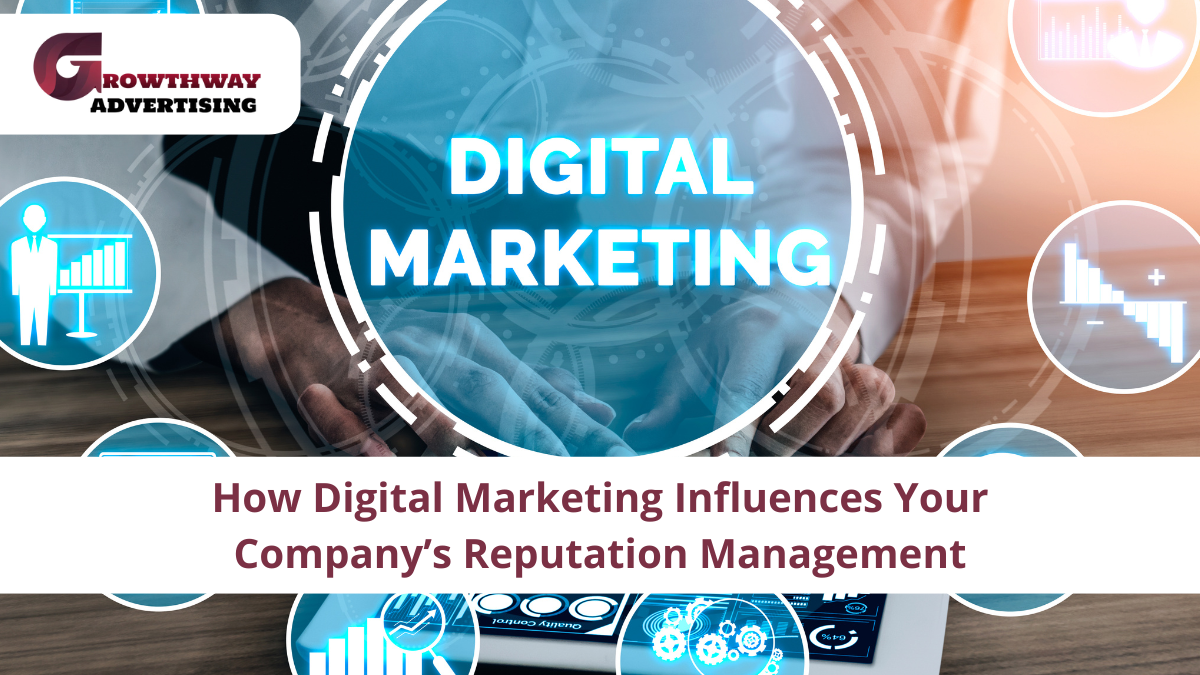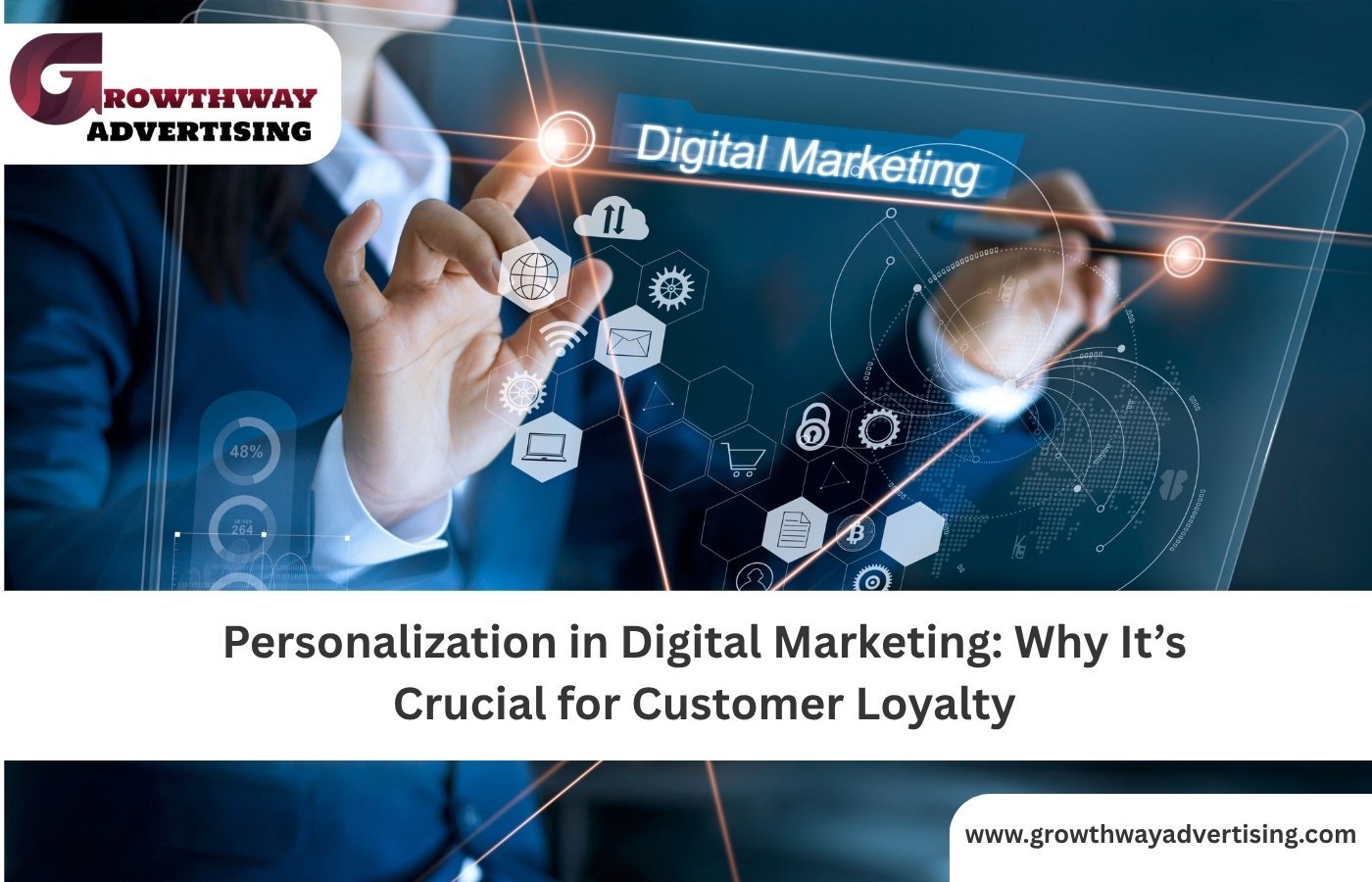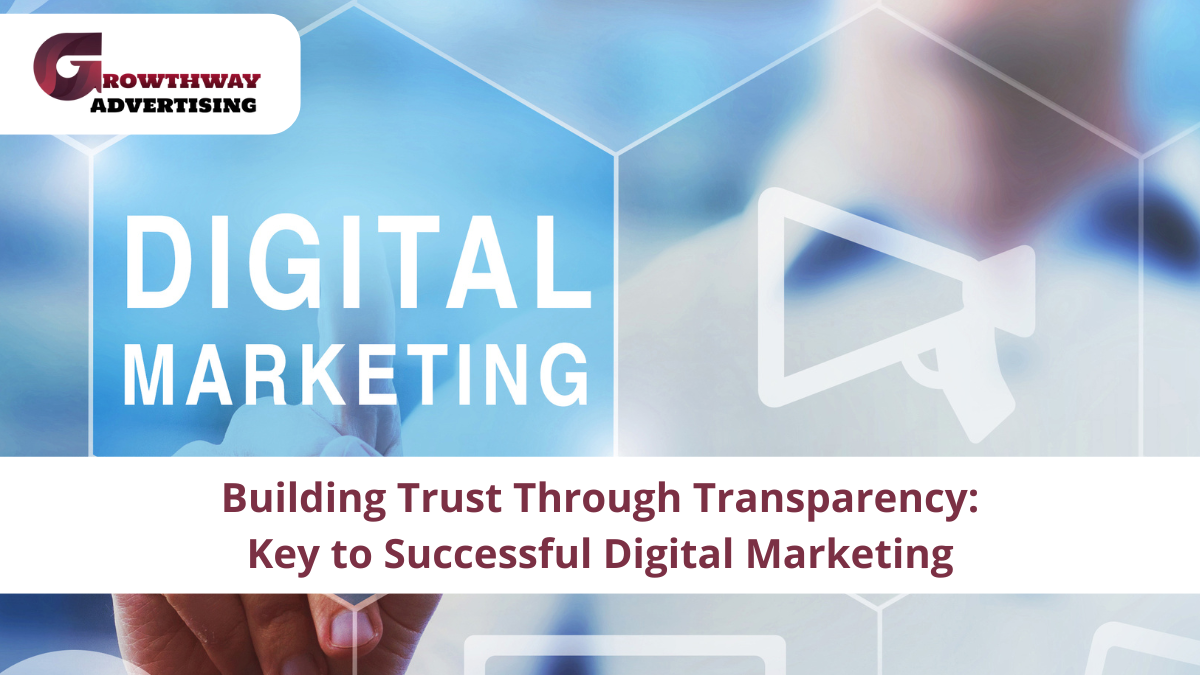In this living in the era of hyper-connectivity, the reputation of your company is not put on the word of mouth-only, it lives, breathes, and develops in real time on digital surfaces. It may be a single tweet, a blog post or a Google review or a viral video and overnight your brand will have a different perception. That is where digital marketing comes in not only to advertise your goods or services but also to define and defend your online brand.
With increased popularity of conducting business research online prior to purchase, reputation management has become an element that no business can leave out in executing their marketing strategies. And how then does digital marketing affect the reputation of your company and what should you do to take advantage of it?
The Role of Digital Marketing in Shaping Online Reputation
Each content you and your business create is a story. Both a sponsored Instagram post and an SEO blog are more of a factor in how your audience perceives your brand and so is a comment reply. Digital marketing services can assist in developing a trusted and believable company image due to common, open, and worthwhile communications.
Reputation is an asset, and a professional digital marketing agency knows it. Digital marketing is proactive unlike traditional PR that responds to crisis situations, which is why it helps to build credibility, enhance the brand sentiment, and also earn the trust of the customers online even before a crisis occurs.
1. Content Marketing: Building Thought Leadership and Trust
Content marketing is one of the most powerful tools that your digital marketing toolbox should have. Relevancy and quality of content makes your business an expert in the industry, a place that compels customers to patronize it but also develops a level of trust.
Thought leadership material, including professional blogs, tutorials or case studies, is published to answer questions and solve problems facing the user. When your viewers always find value on what you share they believe that your brand is credible and authoritative.
Content marketing also supports SEO for reputation, pushing positive content to the top of search engines and reducing the visibility of negative mentions.
2. Social Media Marketing: Humanizing the Brand
Instagram, LinkedIn, X (Twitter) and Facebook are excellent social networks that can help you touch base with your audience. With the help of social media interaction, companies have a chance to react to criticism, join the trends, and show some behind-the-scenes, which helps your brand to feel more friendly to their consumers.
A regular publication, communication with the audience, visual narration build up your digital credibility and demonstrate transparency. This assists in converting followers into faithful supporters. Brands that start conversing and that respond to complaints are closer to forming relationships with their customers and defending their statuses online.
3. Search Engine Optimization (SEO): Controlling What’s Seen
The majority of the Google users never scroll beyond the first page. That makes reputation management impossible without SEO. Website and content optimization will make sure that most positive, helpful and informative information about your business will be at the top of search results.
A well-executed SEO strategy ensures:
- Your official site ranks above unverified sources
- Negative or outdated reviews are pushed down
- Branded search queries display trusted information
A healthy SEO environment will also overcome bad listings as the positive pages will be more keyword-rich and amplified, especially the branded keywords.
4. Review Management: Influencing Purchase Decisions
Industry stats show that close to 90 percent of customers are using online reviews before making a purchase. That implies the necessity to deal with reviews is not negotiable. Management of reviews should not only focus on getting 5 star ratings but should focus on responding to any kind of feedback whether positive or negative.
With the help of digital marketing services, you can:
- Implement review request campaigns
- Monitor new reviews across platforms
- Craft brand-aligned responses
- Analyze review trends for sentiment analysis
When used properly, this will create trust and illustrate to your customers that your brand cares about customer experience.
5. Email Marketing: Reinforcing Brand Integrity
Email marketing, although not usually mentioned, is a very important aspect in ensuring that the brand is viewed well. Customers are more likely to trust your brand when they are receiving useful and personalized information in their inbox, which can be tips, updates, and offers among others.
In addition, you have direct access to your audience through email without any algorithms. Through this channel, you are able to:
- Share positive customer stories
- Address concerns transparently
- Send crisis updates during PR challenges
Emails allow you to shape personal messages of your brand at such delicate times, strengthening its consistency and reliability.
6. Influencer Collaborations: Borrowing Trust
People tend to believe in advice by people rather than brands. That is why influencer marketing becomes an effective strategy to gain credibility quickly.
Collaboration with micro-influencers and professionals working in the industry can be an assistance:
- Validate your brand with niche audiences
- Generate user-generated content (UGC)
- Showcase real-life product usage
Nevertheless, you should stay only on the side of influencers whose values are also suitable to your brand to remove risks to its reputation.
7. Crisis Management: Be Ready, Not Just Reactive
Even amid your best endeavors, bad publicity, complaints, or an inadequate understanding of you and your company can take place. Here is when a crisis communication strategy is needed.
A comprehensive plan should include:
- Pre-approved response templates
- Real-time monitoring tools
- Clear escalation processes
- Rapid publication of official statements
Even the digital marketing agencies usually introduce this feature as part of the online reputation management tools to respond more promptly and recover easily.
8. Employee Advocacy: An Untapped Reputation Goldmine
The strongest reputation shapers can be your workforce. The fact that employees are sharing favorable experiences and the corporate material makes the brand more human and increases the outreach. Encourage employee advocacy by:
- Empowering staff to post on LinkedIn or Instagram
- Celebrating internal wins publicly
- Training staff in social media best practices
This creates a loyalty to the brand internally and externally translates into genuine credibility.
9. Transparency and Customer-Centricity as Strategy
Nowadays shoppers demand to be told the truth. In case of any delay, error, or problem, it gathers a lot more credibility when clarity is provided as opposed to silence. This value must be reflected in your presence in the digital environment.
Ways to show transparency through digital marketing:
- Share behind-the-scenes videos
- Publish product development stories
- Own up to mistakes with corrective action
Provided that your business is truthful, humble, and solutions oriented, it guards, and even strengthens your brand reputation.
10. Tracking Brand Sentiment: What the Data Says
Failure to measure something means that you can not improve it. Brand sentiment analysis enables you to measure the emotions of your audiences on different platforms about your brand. Tools like Mention, Brand24, or even native Instagram/Facebook analytics can help you monitor:
- Changes in tone
- Negative vs. positive mentions
- Emerging brand conversations
The digital marketing agency that you hire must incorporate this tracking into its plan so that it makes changes to the messaging and outreach.
Final Thoughts
The reputation of your company is an energetic living property. Deliberate utilization of digital marketing services, coherent narrative, active participation, and moral activity will assist you in creating the brand which gathers esteem, transforms leads, and stands up to question.
Digital marketing has stopped being about reach and has moved onto reputation resilience. In fact, online reputation management is equally important when compared to SEO or social media, especially to the brands that are keen on the long-term effects.
Whether it is the content and reviews or nano-influencers and email, all of them influence your future. And that is definitely something that no business can afford to leave unaddressed.
FAQ’s
Digital marketing can assist in posting worthwhile content, conversing with clients via social networks, reacting to comments, and being truthful. All this will demonstrate that your brand is dynamic, responsive and customer-centered.
Yes, very much. Social media refers to the platform whereby individuals air their thoughts. Fast response, providing useful information, as well as pleasant interactions with users on such platforms as Instagram, LinkedIn, or Facebook, enhances your brand perception.
SEO helps ensure that positive and accurate content shows up first on Google when someone searches your business. This helps control what people see and protects your digital credibility.
Customers rely on reviews done by fellow shoppers. An effective review management strategy gives you credibility and a good likelihood that people would select your brand. It is professional enough to be polite even when the review is negative.








